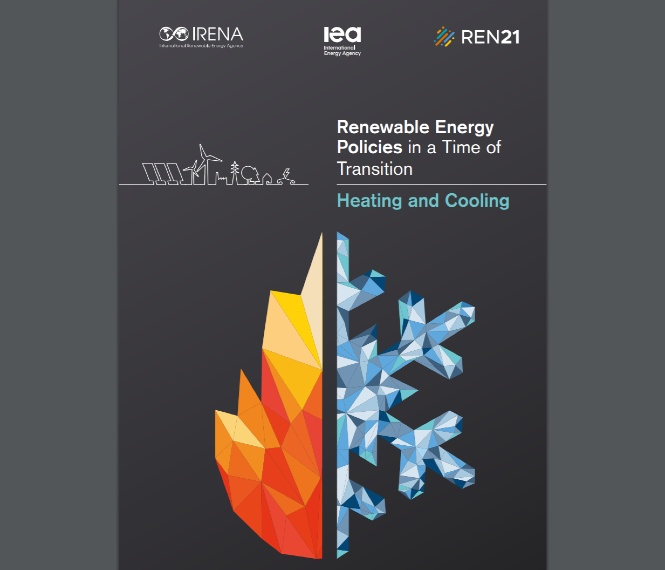This report, jointly developed by IRENA, IEA and REN21, outlines the infrastructure and policies needed for a transition to renewable-based, energy-efficient heating and cooling.
(via IRENA, IEA & REN21) This report, developed jointly by the International Renewable Energy Agency (IRENA), the International Energy Agency (IEA) and the Renewable Energy Policy Network for the 21st Century (REN21), outlines the infrastructure and policies needed for a transition to renewable-based, energy-efficient heating and cooling. This edition follows a broader initial study, Renewable Energy Policies in a Time of Transition (IRENA, IEA and REN21, 2018).
The shift to renewables for heating and cooling requires enabling infrastructure (e.g., gas grids, district heating and cooling networks), as well as various combinations of deployment, integrating and enabling policies. The policy framework can demonstrate a country’s commitment to the energy transition, level the playing field with fossil fuels, and create the necessary enabling conditions to attract investments. Along with highlighting country experiences and best practices, this study identifies barriers and highlights policy options for renewable heating and cooling.
Chapter 8 of this report is focused on the DHC sector: ‘This chapter discusses the benefits and current status of DHC including the shares of renewable heat in existing networks (Section 8.1). It then analyses the barriers to the integration of renewable heat in existing infrastructure and to the development of new infrastructure (Section 8.2). Finally, policy measures are presented to overcome those barriers (Section 8.3).’
Learn more about this publication on the respective websites of the IRENA, IEA & REN21 or download it here.
